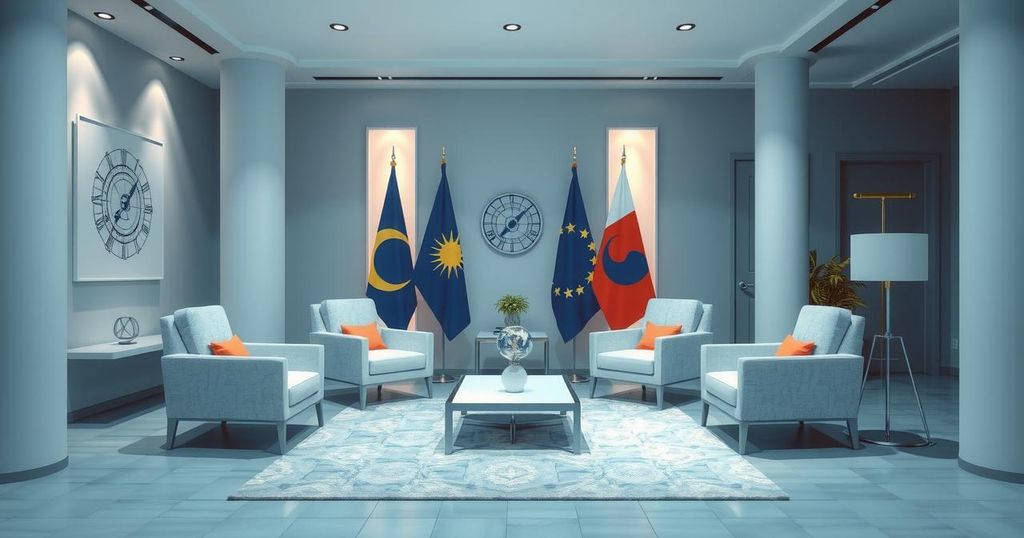Iran reports positive developments in nuclear talks with the US, scheduling a third round for April 26. The discussions have shown some constructive progress, though underlying tensions about Iran’s nuclear intentions remain a major concern.
Iran has announced progress in its indirect nuclear negotiations with the United States, confirming plans for a third round of talks to begin next week. According to Iran’s foreign ministry, senior negotiators will gather on April 26, following constructive discussions of a second round held over the weekend. The talks, which took place at the Omani embassy in Rome, focused on enhancing mutual understanding of key principles.
Abbas Araghchi, Iran’s deputy foreign minister, and US envoy Steve Witkoff engaged in about four hours of discussions. Araghchi described the dialogue as taking place in a “constructive atmosphere,” showing signs of progress. However, a readout from the US side remains absent as the two delegations operated from adjacent rooms, with Omani Foreign Minister Badr al-Busaidi facilitating communication.
Looking ahead, Iran’s Ministry of Foreign Affairs indicated an intention to hold additional technical talks before the leaders meet again next week. Araghchi expressed cautious optimism regarding the outcomes of these discussions, stating, “There’s no reason for excessive optimism or pessimism.” Observers noted that the negotiating pace is likely to quicken in the coming days.
James Bays from Al Jazeera reported the Iranian delegation appeared more favorable, suggesting a shift from previous negativity prior to the talks. This series of meetings marks a significant moment given the historical context—following the 2018 withdrawal of the US from a pivotal nuclear agreement.
The ongoing discussions also touch on the contentious issue of Iran’s nuclear program, with Western nations expressing concerns over potential weapons development. Yet, Iran insists that its nuclear ambitions are exclusively for peaceful purposes. The International Atomic Energy Agency’s head recently highlighted that Iran is close to developing the capability for a nuclear weapon, pointing to ongoing tensions and concerns surrounding the negotiations.
Notably, the US and Iran have had no formal diplomatic relations since 1979. Current US foreign policy, led by the Trump administration, aims to revitalize negotiations. Meanwhile, both parties continue to grapple with differing perspectives—particularly over whether Iran can retain a civilian nuclear program or must dismantle it completely, which remains a sticking point. Bays emphasized that while general frameworks are being discussed, the intricate details are yet to be thrashed out—it’s that detail where the real complexity lies.
In summary, Iran and the US are progressing in indirect nuclear talks, with a third round of negotiations confirmed for April 26. The initial discussions have been characterized as constructive, though significant doubts about intentions and outcomes persist. Key issues, including the future of Iran’s nuclear program, remain critical to reaching any agreement.
Original Source: www.aljazeera.com






